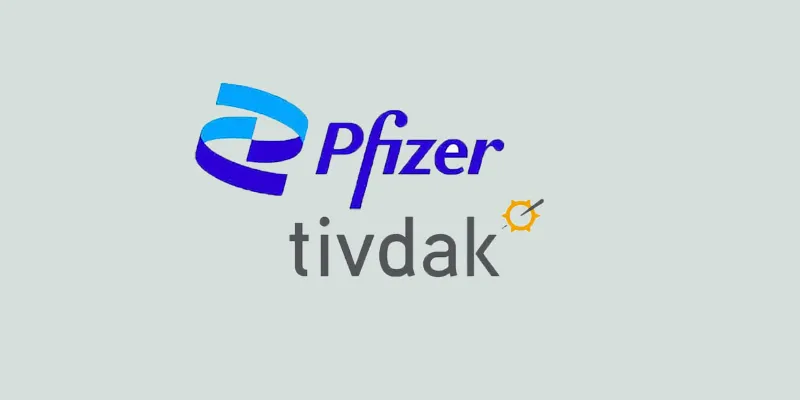FDA Prioritizes Review of Cervical Cancer Drug TIVDAK Following Promising Trial Results

10 January 2024
Pfizer and Genmab A/S announced that the FDA is prioritizing the review of TIVDAK® for advanced cervical cancer. This follows promising results from the Phase 3 innovaTV 301 trial, showing TIVDAK's superiority over chemotherapy in survival rates.
The US Food and Drug Administration (FDA) has prioritized the review of TIVDAK® (tisotumab vedotin-tftv) for recurrent or metastatic cervical cancer, following promising results from the Phase 3 innovaTV 301 trial. This decision follows the submission of a supplemental Biologics License Application (sBLA) by Pfizer and Genmab A/S. The drug's potential approval could significantly change treatment options for patients with limited alternatives.
The spotlight on TIVDAK stems from its performance in the global Phase 3 innovaTV 301 trial, which presented compelling evidence of its effectiveness. Enrolling patients with previously treated recurrent or metastatic cervical cancer, the trial showcased TIVDAK’s superiority over chemotherapy in terms of overall survival (OS), progression-free survival (PFS), and confirmed objective response rate (ORR). The trial's findings, presented at the European Society of Medical Oncology (ESMO) Congress in October 2023, reinforced TIVDAK's favorable benefit/risk profile.
Dr. Roger Dansey, Pfizer's Chief Development Officer for Oncology, underscored the trial's results, emphasizing TIVDAK's potential in improving survival rates. He stated: “The Phase 3 innovaTV 301 trial demonstrated a favorable benefit/risk profile, including improvement in overall survival, and adds to the overall data supporting TIVDAK as a treatment option for people with recurrent and metastatic cervical cancer who have limited treatment options. The FDA acceptance of our sBLA for review is important progress toward continuing to offer an option that can extend the lives of more adults with cervical cancer.”
The innovaTV 301 trial (NCT04697628) was a 1:1 randomized, open-label Phase 3 study, comparing TIVDAK with the investigator's choice of chemotherapy in 502 patients with recurrent or metastatic cervical cancer. The trial targeted a diverse patient group, including those with squamous cell, adenocarcinoma, or adenosquamous histology, who showed disease progression post-chemotherapy treatment.
While TIVDAK’s efficacy is promising, it's crucial to note its safety profile. The U.S. Prescribing Information for TIVDAK includes a BOXED WARNING for Ocular Toxicity, alongside precautions for peripheral neuropathy, hemorrhage, pneumonitis, severe cutaneous adverse reactions, and embryo-fetal toxicity.
Jan van de Winkel, CEO of Genmab, stated: “Therapeutic options for metastatic cervical cancer that not only demonstrate a survival advantage but also include a novel approach to treating this condition are needed. This milestone underscores our commitment to continuing to deliver TIVDAK as a treatment option to women in the U.S. diagnosed with cervical cancer whose disease has progressed after first-line treatment.”
The FDA's decision, with a Prescription Drug User Fee Act (PDUFA) goal date of May 9, 2024, marks a significant step in the fight against cervical cancer. TIVDAK represents a new class of antibody-drug conjugates (ADCs), combining Genmab's human monoclonal antibody directed to tissue factor (TF) with Pfizer’s ADC technology.
Indication: In the U.S., TIVDAK is approved for treating adults with recurrent or metastatic cervical cancer post-chemotherapy. Granted accelerated approval, its continued use hinges on tumor response and durability, with full approval contingent on further clinical benefits demonstrated in confirmatory trials.
About TIVDAK® (tisotumab vedotin-tftv)
TIVDAK® (tisotumab vedotin-tftv) is a novel antibody-drug conjugate combining Genmab's human monoclonal antibody targeting tissue factor (TF) and Pfizer’s ADC technology. This drug attaches the cell-killing agent MMAE to the antibody, which binds to TF-expressing cancer cells. Upon binding, MMAE is released, disrupting cell division and causing cancer cell death. TIVDAK's effectiveness, demonstrated in nonclinical studies, also includes triggering immune responses to destroy cancer cells, showcasing its multifaceted approach in cancer therapy.











Comments
No Comments Yet!